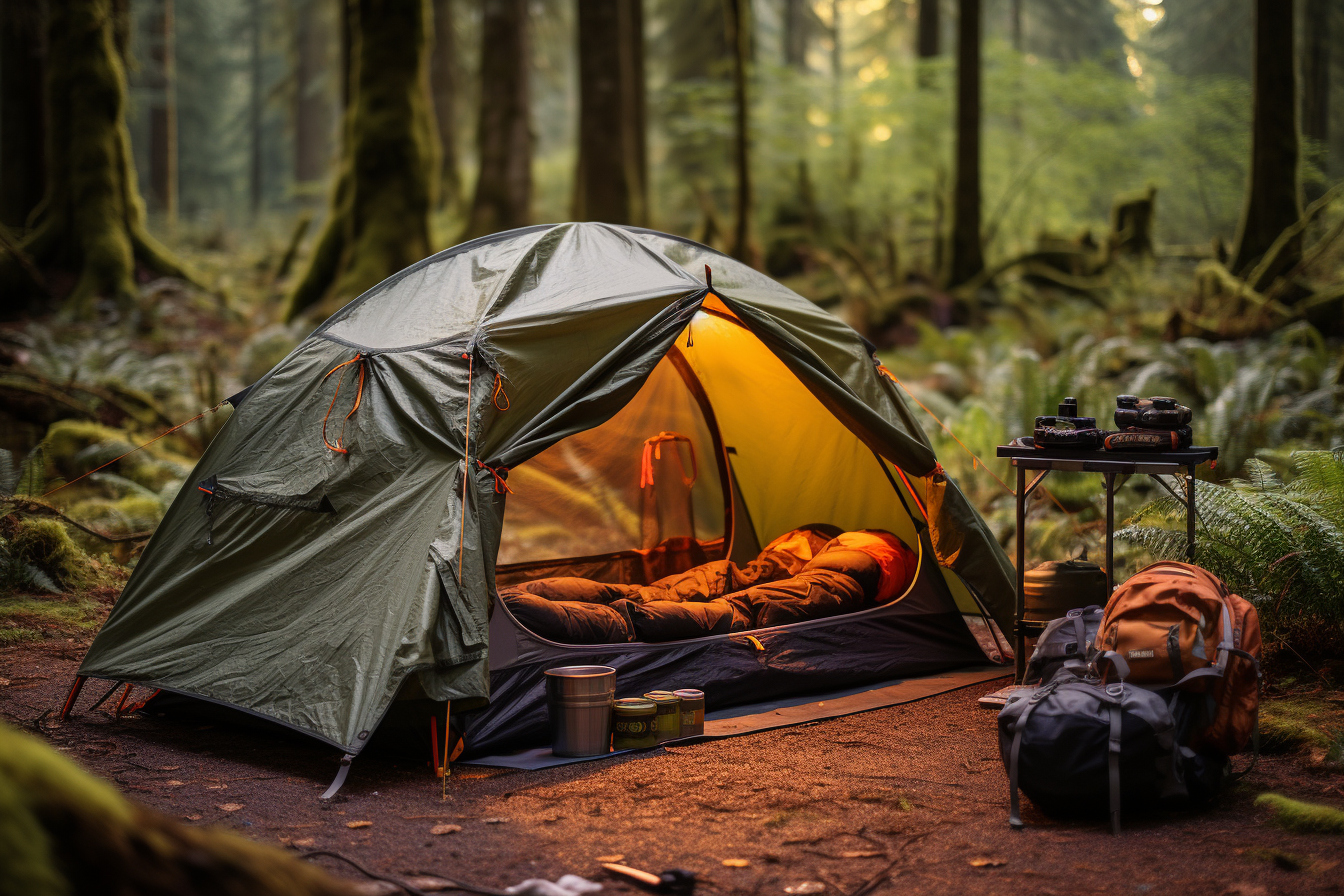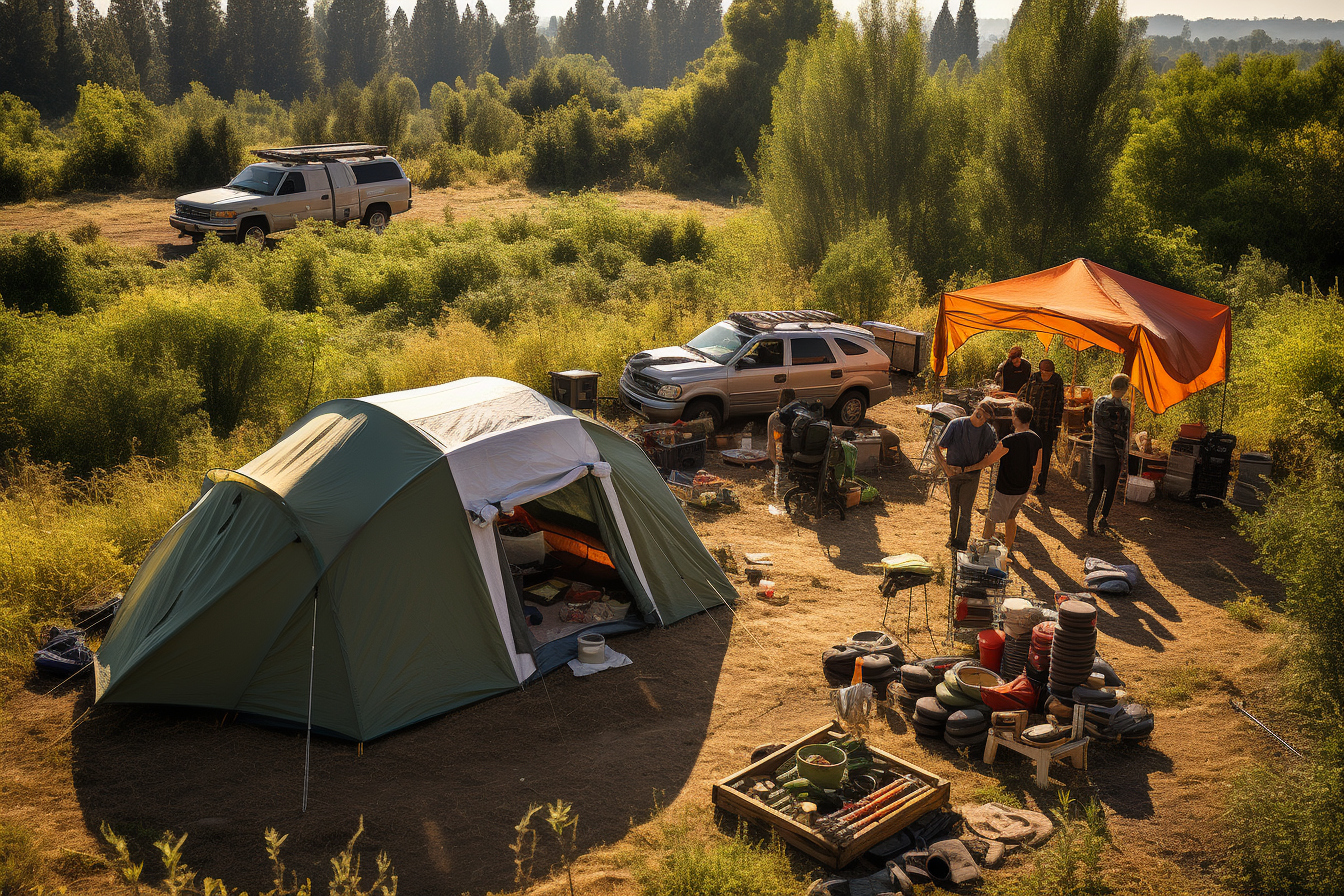Family camping is a unique experience that allows you to reconnect with nature and get away from the stress of everyday life. However, for this stay to be successful, it is important to equip yourself well and organize activities adapted to all members of the family.
The essential equipment for a successful family campsite
When you go camping with your family, it is important to provide the necessary equipment for a comfortable stay. Here is a list of some essential items to take with you:
- Spacious tent: Opt for a family tent with enough space for everyone to sleep and move around comfortably.
- Camping mattresses: Invest in comfortable mattresses for restful sleep. Inflatable or self-inflating models are the most practical.
- Sleeping bag: Choose sleeping bags that are suitable for the expected temperatures. Very cold models are preferred if you are going to the high mountains.
- Gas stove: To cook and prepare your meals, a gas stove is essential. Remember to bring spare gas bottles.
- Cooler: To keep your food and drinks cool, a cooler is essential. Opt for a large size model if you are going for several days.
- Flashlight: To give you light in the evening, a flashlight is essential. Choose LED models for better autonomy.
- Warm, waterproof clothing: Even in summer, it can be cool at night. Remember to bring warm, waterproof clothing to avoid inconvenience.

Organize your activities for an unforgettable family camping trip
Camping is an opportunity to reconnect with nature and practice family activities. Here are some ideas for activities for a memorable stay:
- Hiking: Explore the hiking trails with your family. Consider choosing a route suitable for all levels.
- Fishing: Fishing is a fun and relaxing activity to practice with the family. Learn about local fishing rules and necessary permits.
- Outdoor games: Take balls, frisbees or even board games for convivial moments outdoors.
- Campfire: The campfire is an opportunity to share unforgettable moments with family. Consider bringing wood and ingredients to prepare roasted marshmallows.
- Observation of fauna and flora: Nature is full of surprises. Discover the animals and plants of the region.
- Water activities: If you camp near a lake or river, take the opportunity to practice water activities like canoeing or rafting.
The ecological impact of family camping
Family camping, while a source of adventure and relaxation, also has an impact on the environment. When not practiced responsibly, it can cause damage to local flora and fauna. Here’s how to minimize your ecological footprint during your family camping trips.
The importance of respecting natural sites
It is essential to choose campgrounds that promote ecological practices. These campsites, often labeled, take care to limit their impact on nature. By choosing such sites, you support companies that are committed to preserving our environment.
Biodegradable products for your comfort
Opt for biodegradable products such as soaps, detergents and toiletries. These products decompose naturally and do not damage the local ecosystem, unlike chemicals.
Waste management when camping
Make sure to pick up all your trash, including small ones, like cigarette butts or pieces of paper. Use biodegradable trash bags and try to reduce your waste production as much as possible by opting for products without excessive packaging.
Responsible use of water
Use water sparingly. If you must use water from natural sources, such as a river or stream, be sure to purify it before consuming it. Avoid disturbing aquatic ecosystems and polluting water with detergents or other chemicals.
Raising awareness of local fauna and flora
Take advantage of your camping trip to educate your children on the importance of preserving nature. Observe the fauna and flora without disturbing them. Avoid feeding wild animals, as this can disrupt their natural diet and make them dependent on humans.
The little-known benefits of family camping
Family camping is not just about connecting with nature and escaping from everyday life. Beyond the adventures and shared memories, it conceals unsuspected advantages which contribute to personal and family development.
Development of survival skills
When camping, especially in remote areas, it is necessary to know some basic skills to ensure safety and comfort. Lighting a fire, setting up a tent, or even purifying water are all skills which, once mastered, strengthen self-confidence. For children, this learning is an opportunity to develop their autonomy and resourcefulness.
Stimulating creativity
Deprived of their electronic gadgets and faced with the immensity of nature, children (and adults!) see their imagination increased tenfold. The woods become enchanted forests, the streams become unexplored territories. These moments of imagination promote creativity and strengthen family bonds.
An opportunity to learn and raise awareness
Camping provides an invaluable opportunity to educate young people about wildlife, flora and ecosystems. This natural immersion is a concrete way of raising awareness about ecology, far from theoretical lessons. Learning to recognize animal tracks or understanding why you should not pick certain plants are lessons that will remain engraved.
Strengthening family ties
Far from daily distractions and screens, the family refocuses on the essential: the present moment. Tasks are done collaboratively, whether it’s preparing a meal or organizing a hike. This mutual assistance strengthens cohesion and creates indelible memories.
The importance of disconnection
In the digital age, disconnecting has become a luxury. Family camping provides this valuable opportunity to disconnect from screens and reconnect with yourself. This disconnection is beneficial for mental health, promoting relaxation, meditation and reflection.
Adapting to dietary needs when camping with family
When you go camping with your family, the question of food takes on an important role. Eating well and ensuring that everyone’s needs are met, while respecting the constraints of an outdoor stay, can seem complex. Here are some tips and information to best manage this essential dimension of camping.
Choose easy and nutritious meals
Simplicity is key when it comes to cooking while camping. Choose recipes that do not require a lot of ingredients or utensils. But that doesn’t mean we should neglect nutrition. Think about complete meals, rich in proteins, carbohydrates and vegetables. Dehydrated soups, pastas with fresh or canned vegetables, or filled sandwiches are excellent options.
Take dietary restrictions into account
Within a family, it is not uncommon to find different dietary preferences or restrictions. Whether it is allergies, intolerances or specific dietary choices (vegetarianism, gluten-free diet, etc.), it is essential to provide alternatives to ensure that everyone finds what they are looking for. For example, if a family member is vegetarian, consider packing plant-based proteins like lentils or beans.
Optimize food preservation
Without the conveniences of a traditional kitchen, food preservation can become a challenge. Invest in a good cooler and reusable ice packs to keep food fresh. For dry products, opt for airtight containers that protect against humidity and insects.
Prepare snacks for hikes
During long walks or hikes, it is important to have snacks to recharge the batteries. Dried fruits, nuts, homemade cereal bars or energy cakes are perfect for this. They provide rapid energy and are easy to transport.
Water: the key element
Hydration is crucial when staying outdoors. Make sure you always have a source of drinking water nearby. If you are camping near a natural spring, carry purification tablets or a filter to ensure the safety of the water you consume.
Share the pleasure of cooking
Involving the whole family in meal preparation can turn this task into an enjoyable and educational time. Children can learn the basics of campfire cooking and it can also be an opportunity to teach safety skills.













